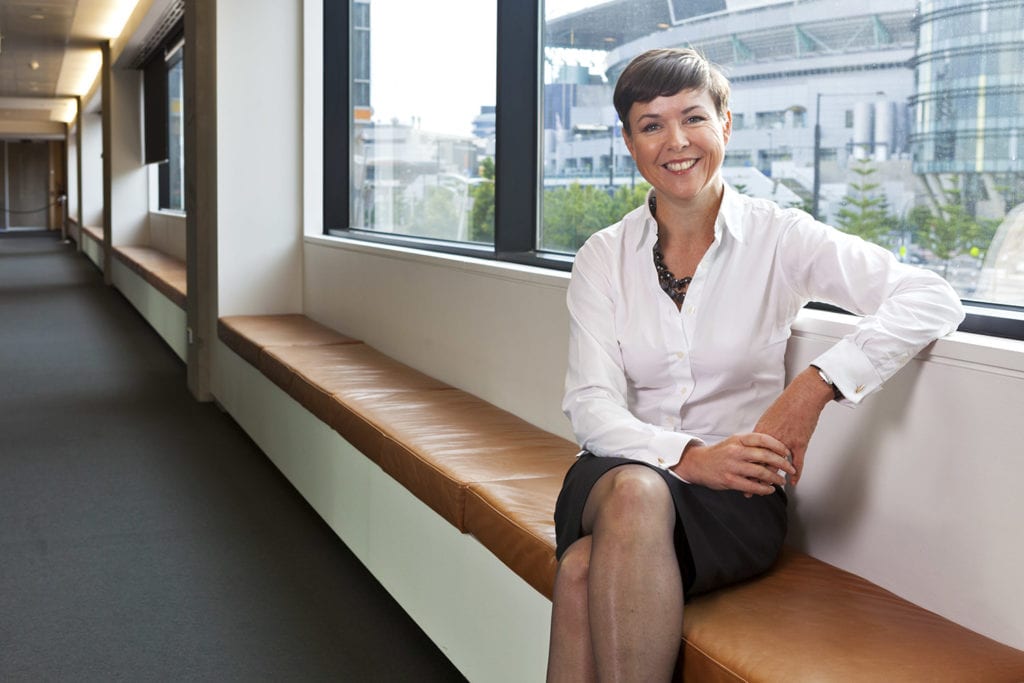As a healthy and positive person I have been spending more time thinking and talking about death than is normal in polite society.
What I have discovered is a stark gender difference when it comes to the inconvenient truth that gets us all in the end: that whilst women can be open and curious men are really uncomfortable about talking about death.
Since leaving my role as a member of the executive team of one of Australia’s big four banks last year I have chosen to actively pursue a challenge that is uncomfortable and controversial.
I have joined Andrew Denton in the campaign for voluntary assisted dying. My reason for doing so is that I have been fortunate to grow up in an era and in a country where I have been able to choose to select my own partner, to choose to study, to work and to have children. My need for choice and dignity extends to my end of life and I seek this for those that I love.
While more than 75% of Australians support voluntary assisted dying for those who are suffering in the final stages of life, the majority lack time or confidence to advocate for change. So I am investing my time and resources to advocate for the 75% who want choice in end of life.
What has been intriguing has been the reaction I have had to devoting a year of my life to enable death with dignity in Australia. Most men become uncomfortable and look at me as if I have lost my senses and am wasting my time and foregoing income. In stark contrast many women will embrace me and implore me to make this possible.
Given the gender inconsistency in this reaction I became curious as to why women are more actively involved in advocating for change and the right to choice in end of life. I learnt that 80% of carers are female and that as women will live longer than males the chance of contracting a terminal illness and suffering increases substantially for females.
But I have also discovered something intuitive that is not so readily explained by statistics. There appears to be something deep in the role and psyche of women that starts with bringing life into the world and continues through to caring and nurturing in the final stages of life.
What I have found interesting during this campaign is that the most vocal and powerful opponents of choice tend to be males – senior doctors, clergy and politicians.
Despite having spent my career in male dominated industries of law, mining, manufacturing and financial services I have not faced such a confluence of power held by males in positions of authority. I have not seen power and influence so fiercely concentrated on preventing us from having choice.
For those involved in abortion legislation this is not news. The Right to Life movement and the Australian Christian Lobby are well funded and well resourced to oppose the introduction of a law that would enable us to choose to end our suffering – even if we are a capable adult with a terminal illness and are in the final months of life.
I respect diversity of views and the role that faith plays in people’s lives but I object to having those views imposed on all of us by those with power and influence thereby denying us the right to choose for ourselves.
This week legislation to enable voluntary assisted dying has been tabled in the Victorian Parliament. After more than 30 attempts in Australia to pass dying with dignity laws, this legislation follows a rigorous consultative and careful drafting process. If a majority of members of Parliament do not vote in favour of this legislation in the conscience vote and law does not pass suicide will be legal but the option of ending suffering in dignity with voluntary assisted dying will remain illegal.
If this law does pass we will have a strong and positive precedent for choice in other Australian States to follow.
I continue to be invigorated by bringing the voice of the 75% majority to life and committed to encouraging our Victorian MPs to exercise their conscience and represent their constituents. I am grateful to the women, many of whom are nurses, nuns, wives, mothers and daughters who have shown courage and stepped forward to share their stories and engage their local MPs. With a majority of our elected representatives in Parliament being male and many of them influenced by their own faith we have a significant challenge ahead.
If you would like to learn more or join women supporting the voluntary assisted dying campaign to encourage Victorian MPs to walk in our shoes and understand our views before they exercise their conscience vote this year check out GoGentleAustralia.org.au.
And for more of a sense of why I support this law, watch this beautiful short video.


